Trouble in the premier state
Only eight months out from an election, NSW’s Dominic Perrottet is facing a world of pain.
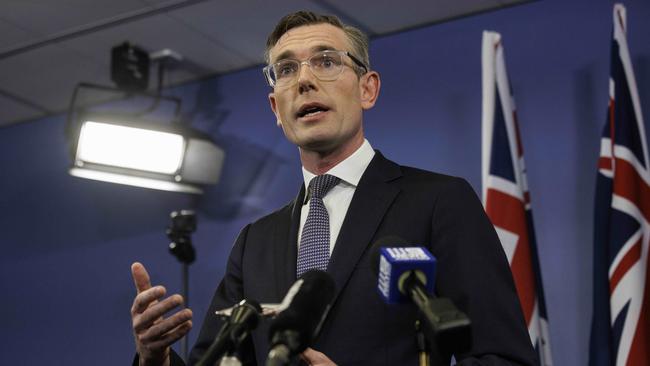
It is a government cataclysm almost entirely self-inflicted. On Tuesday evening, Perrottet accepted the resignation of Stuart Ayres, one of his most senior ministers, over the highly irregular circumstances of appointing former deputy premier John Barilaro to a plum trade post in New York on a $500,000-a-year salary.
Ayres’s exit came 48 hours after Perrottet sacked another minister, Eleni Petinos, over allegations she “seriously bullied” staff. Petinos happened to be the minister responsible for workplace safety in the state.
As if he needed another political headache in the same week, Perrottet picked an almighty public fight with Australian Rugby League boss Peter V’landys after having “blatantly reneged” on a government deal to spend hundreds of millions of taxpayers’ funds upgrading major football stadiums.
Just eight months out from a state election, the NSW Premier would be keenly aware brawling with V’landys is not advisable. Even if Perrottet’s argument makes sense that the funds are better redirected to help flood victims, V’landys is a man with a big megaphone and a lot of allies in political, media and other influential circles. He has threatened to pull ARL grand finals out of Sydney. He has a potentially powerful constituency behind his cause: avid NSW footy fans who will vote in the election next March.
Perrottet’s premiership could end sooner than that. If the NSW Liberals’ party room concludes defeat is certain with Perrottet as leader, it could turn on him and install another considered to have a better chance of matching urbane Labor opposition leader Chris Minns. Perrottet has held the top job for only 10 months, following the exit of popular predecessor Gladys Berejiklian.
The worst of Perrottet’s problems is undoubtedly the Barilaro fiasco. Barilaro’s appointment was announced courtesy of a media release, issued shortly after 4pm on a Friday in mid-June by Ayres, just days before a big-spending budget that is all but forgotten.
Perrottet already needed to overcome the perception all ageing governments face – in this case after four premiers and 12 years in office – of being out of puff and overdue for change. The Barilaro saga undermines public confidence in the accountability, integrity and, frankly, basic judgment of the government he leads.
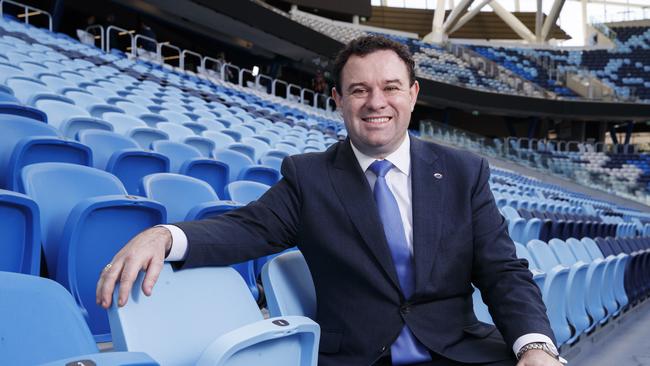
Four weeks into the debacle, Perrottet hoped the issue would go away when Barilaro withdrew from taking up the New York post because it was “untenable”. Barilaro seemed to be the main source of the problem: he’d created the New York job and five similar ones when he was trade minister; then he effectively blocked senior bureaucrat Jenny West as the successful New York candidate by changing the selection process, quit politics, applied for the job and took it himself.
Since then, Perrottet and Ayres, Barilaro’s successor as trade minister, have looked ridiculous. In Perrottet’s case, he persisted with his nonsense assertion that “no suitable candidate” was found from a first recruitment round last year and Barilaro was “the best” on merit after a global search.
Ayres also has insisted West was not picked for New York – despite his signature appearing next to the word “approved” in ministerial documents after she was confirmed for the job in August last year.
Ayres sticking with the further claim he was “at arm’s length” from an independent NSW Public Service process that selected Barilaro was his final undoing. Perrottet had no choice except to cast out Ayres and flag a possible breach of the ministerial code of conduct when the draft report of a review he’d commissioned, running parallel to a separate upper house parliamentary inquiry, was unequivocal.
Confirming Ayres’s departure on Wednesday morning, Perrottet said: “Information that has come to light in the review clearly demonstrates the process was not at arm’s length.”
Ayres has confirmed he will sit out the term in parliament (he has also resigned as deputy NSW Liberal leader) and so he will spare Perrottet an unwanted by-election in his western Sydney seat of Penrith. But Perrottet and Ayres would now seem to be on different narrative tracks.
In his resignation statement, Ayres said the review by former public service commissioner Graeme Head created “a question” as to whether he’d breached the ministerial code of conduct – and insisted none occurred. He still seems to think his interactions with the public service were “standard”. If Ayres is right, why did he not keep his job or step aside until cleared? Double standards in the treatment of Petinos are pertinent here. Ayres’s future had been under a cloud for weeks, with no action from Perrottet, yet the NSW Premier was swift to get rid of Petinos.
Perrottet sacked her on Sunday night, despite initially saying he’d been briefed on an anonymous complaint against her, which she’d denied, and the matter had been dealt with “appropriately”. Now Perrottet said “further matters” relating to Petinos had emerged but he declined to say what they were.
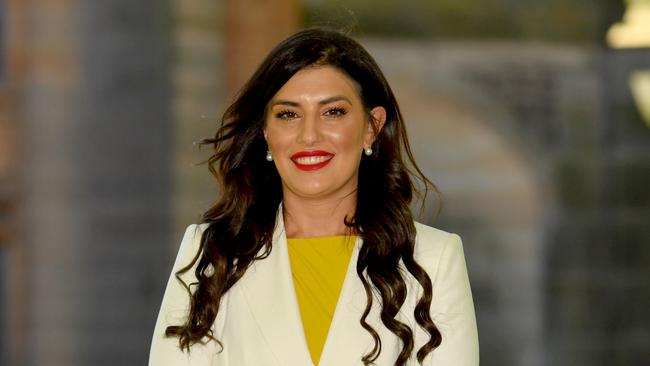
From that point onwards, the different treatment for Ayres was stark. His days were numbered unless Perrottet was to look foolish.
The recall of Amy Brown, secretary of Ayres’s former department, and chief executive of Investment NSW, to the parliamentary inquiry into the Barilaro appointment on Wednesday was illuminating, mostly because Brown’s evidence shed light on the conduct of Ayres. While still maintaining she felt she was the final decision-maker in Barilaro’s appointment, Brown conceded Ayres had some influence. She punctured his central claim. “In my view, he was not arm’s length from the process,” Brown said. “There were multiple intersection points throughout.”
Indeed there were. Brown recalled many conversations with Ayres about the New York position where he showed an active interest and signalled his preferences.
Back on September 27 last year, the NSW cabinet had acted swiftly, following a submission from Barilaro, to convert the New York trade post and any others still unfilled from public service to ministerial appointments. But Ayres did not proceed with legislation to enact the change when he took over from Barilaro as trade minister from October onwards. The New York post remained a public service pick, and in limbo.
Ayres sent Barilaro a text in December that alerted him to a re-run government ad for the New York post in The Australian Financial Review. Barilaro was still an MP before formally leaving parliament at the end of the month.
According to Brown, Ayres told her that he’d forwarded the ad to Barilaro “like I would anyone else”. She gave Ayres a “heads up” when Barilaro applied for the job in January, and Ayres signalled his attitude to Brown soon after, telling her: “If a trade minister can’t represent NSW for trade, then I don’t know who can.”
Brown said Ayres told her Barilaro “could be quite good” and had the “positive attributes” for the New York role. The signals from Ayres seemed to favour his former ministerial colleague. Ayres met Barilaro’s chief rival for the New York position, Kimberley Cole. He asked her what qualities she could bring to the job during a 12-minute online “teams” meeting, with Ayres in Sydney and Cole in Portugal. Brown noted Ayres was not impressed.
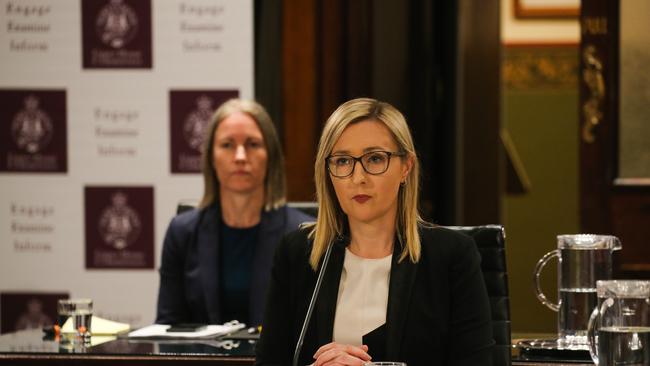
As Brown also confirmed on Wednesday, Ayres was an “informal referee” for Barilaro and she took this into account in her decision-making. At this point inquiry chairwoman Cate Faehrmann asked: “How is this independent in any way?”
If alarm bells did not sound for Ayres or Perrottet (also aware of Barilaro’s interest in the job), they clanged loudly for Brown. She told the parliamentary inquiry she became “nervous” that Barilaro’s appointment would be politically controversial. In April she phoned Michael Coutts-Trotter, secretary of the Department of Premier and Cabinet and her immediate boss as head of NSW Public Service.
She’d already told Coutts-Trotter back in January that Barilaro had applied and he had “expressed some surprise”. Now she told him Barilaro was the successful candidate, she was nervous, and she wanted him to raise the issue with Perrottet. “He said leave it with me,” Brown said.
When Brown spoke to Coutts-Trotter again, she asked if she needed to know anything before Barilaro was confirmed in the job: “I think he shrugged and said ‘no’ … he was resigned to it.”
Brown scored yet another signal from Ayres. He told her that he’d informed senior ministers about Barilaro getting the job at an informal cabinet subcommittee meeting that included Perrottet.
Brown said she did not know who informed Barilaro that he’d scored the position. She didn’t. But she recalled Ayres coming back to her in early May and saying Barilaro was “good to go”.
While Brown was placed in an invidious position, nominally in charge but constantly interacting with Ayres as his subordinate, there are some curious aspects to her own conduct. At Wednesday’s parliamentary inquiry hearing, Brown stood by earlier evidence that “by the end of the first recruitment process, no suitable candidate was found” for the New York position. Why persist with sophistry? West was confirmed as the successful candidate last August, as much documentation shows, only to have the offer later rescinded. Brown even texted West on August 12, saying “congratulations, this is one to frame”, with a copy of the written briefing sent to then premier Berejiklian noting the appointment. Brown’s text included emojis of the Statue of Liberty and a bottle of champagne.
On Wednesday, Brown also seemed to cast doubt on the appropriateness of West applying for the position. She noted West had been her deputy at Investment NSW and led the trade commissioner recruitment process before applying for the New York job herself in May last year, after applications had closed. Odd indeed. Yet Brown said she allowed and encouraged West to apply after the closing date.
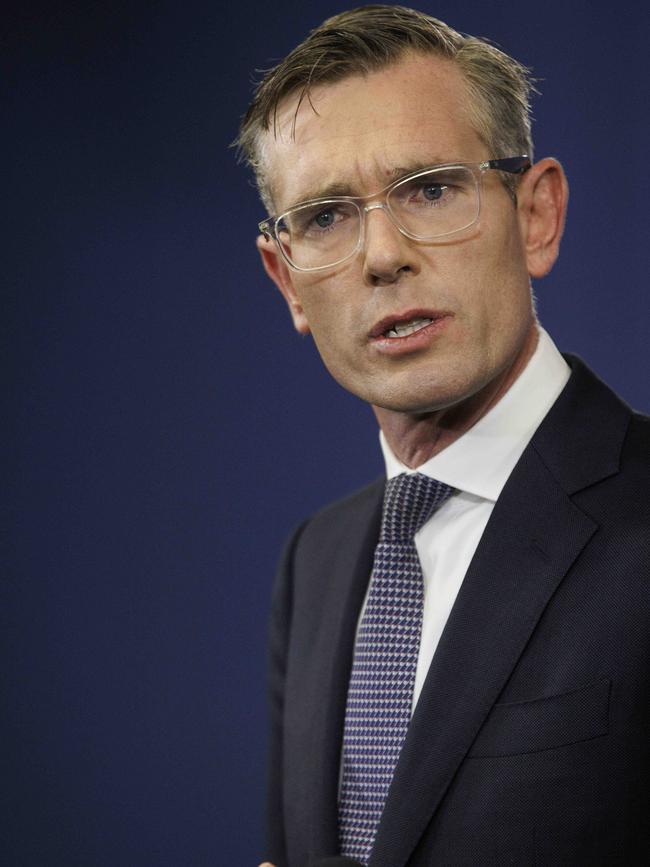
When Brown later told West she would not get the New York post, she also said West was likely to lose her job as well because the funds for her salary were to go elsewhere. Brown told Wednesday’s inquiry she had “a particular taste in my mouth” after later learning that West had taken a “file note” when told the bad news. Brown also denied she would have told West the New York job was to be a “present for someone”.
In the realm of employment relationships, it appears to have been appropriate in Brown’s mind for her to protect herself by approaching Coutts-Trotter and raising doubts about the Barilaro appointment, but not savoir faire for West to seek protection by taking a file note as her professional career crumbled in an instant.
Another possible anomaly is Brown’s claim she had doubts about West’s suitability before the New York job selection process was changed because of performance issues and an exaggerated CV. West has denied these claims, but it looks like a case of retrofitting: Brown possibly looking for faults after West’s job hopes faded, not before.
Still more problems arise with criteria ratings for the New York shortlisted candidates when Barilaro later won the job. A draft shortlist report in April by recruitment firm NGS Global showed Cole scored “exceeds” in four key criteria, while Barilaro scored “exceeds” in two and “meets” in two others.
A revised NGS report in May elevated Barilaro to “exceeds” in all four categories and downgraded Cole. Brown agreed this was odd, but she blamed NGS for submitting a report she did not ask for, and for making an error by not reflecting the results of interviews conducted by the selection panel as she recalled them. Brown told NGS to fix the error. The selection panel was then shown the “final” May version and did not know about the April draft. The panel signed off on the final report after Barilaro was selected.
In the end, as Brown noted in her Wednesday evidence, her choice of Barilaro “reflected the reality of the selection process”. Maybe so, but that reality appears reflected through the prism of some unilateral actions on her part, and on many occasions following input from Ayres. Could there have been consequences for Brown if she had not selected Barilaro?
Perrottet has now acknowledged there are concerns about West’s treatment, and the Barilaro appointment. He narrowly survived a scandal two years ago when the NSW workers compensation scheme, icare, which he set up as treasurer in 2015, came close to collapse after financial mismanagement, and it was further revealed icare was paying the salary of a ministerial staff member in Perrottet’s office under an alleged “sham arrangement”.
Perrottet’s ability to last as premier in the short term will depend on how close the Barilaro affair comes to his door. Did he play a role in denying West the New York job? What did he know about the process to select Barilaro? It’s indisputable Perrottet was there at the key moments. He must have known what was happening.


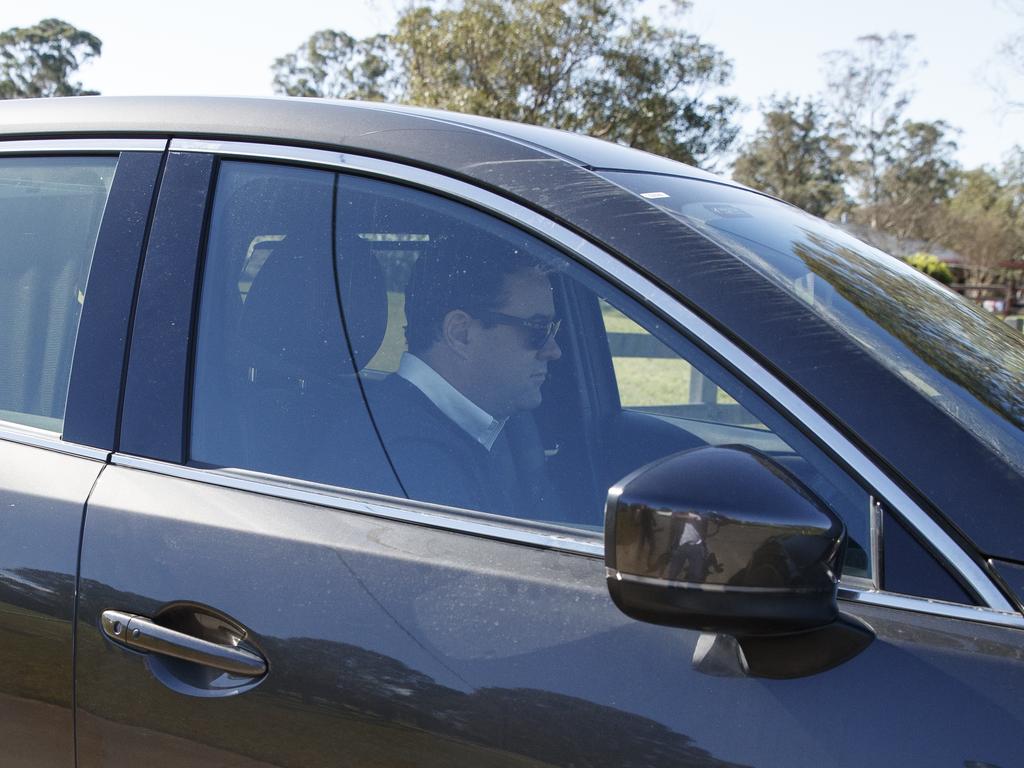
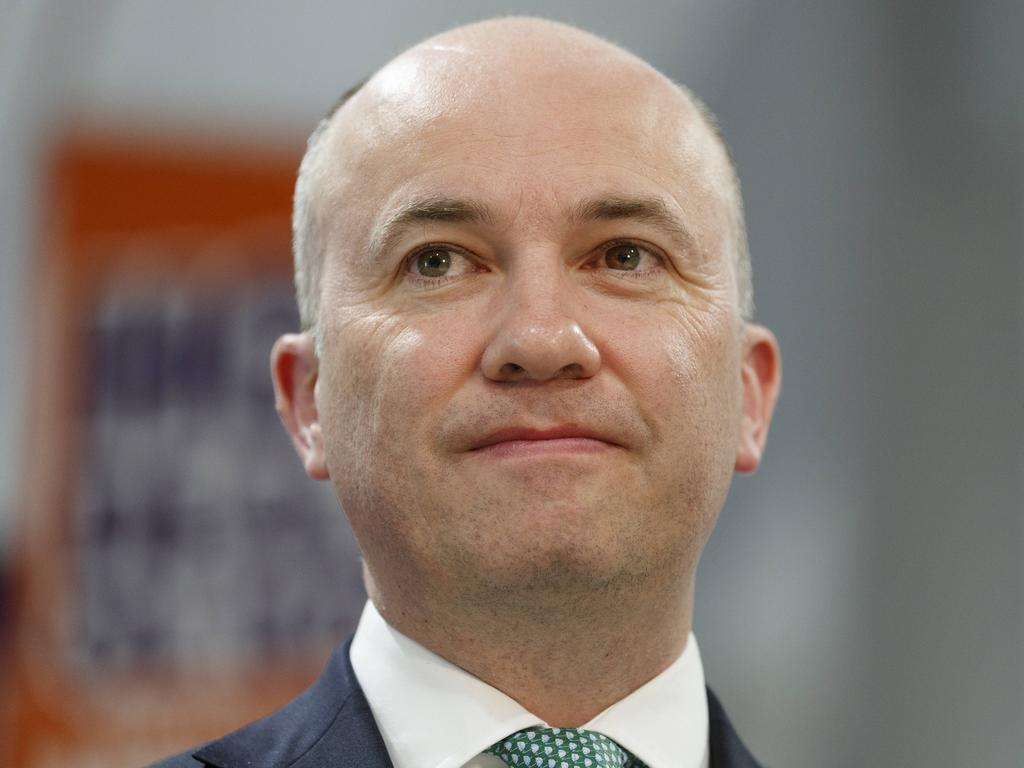

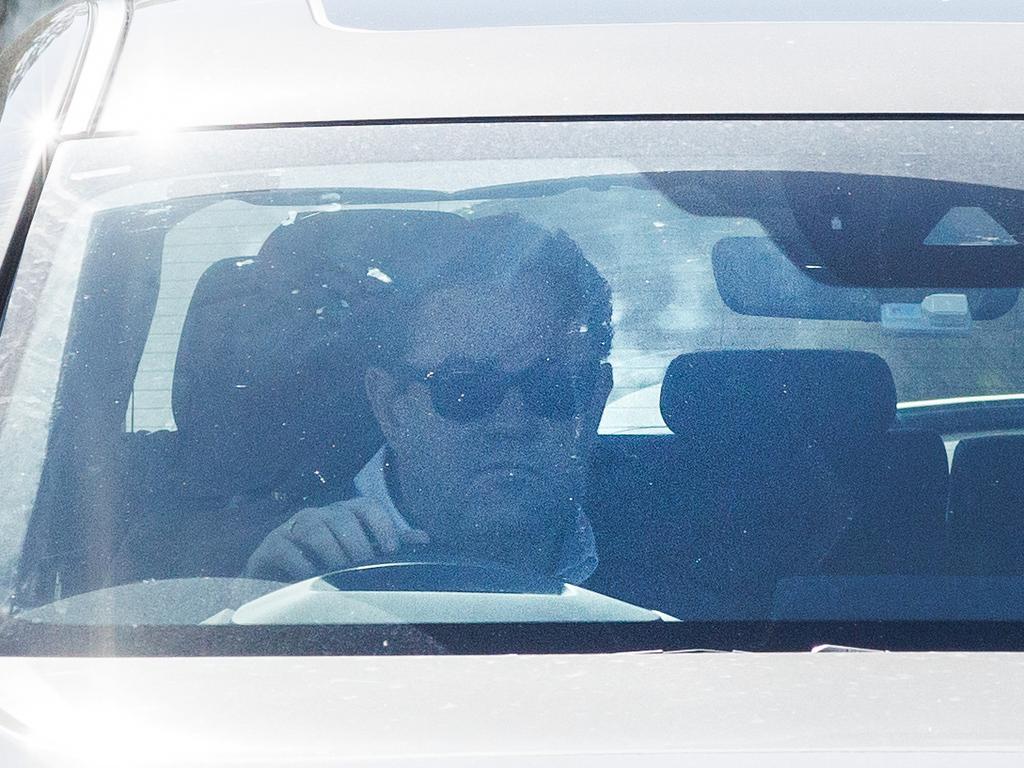


Watching a government implode is a sorry sight. The look of panic on NSW Premier Dominic Perrottet’s face, overwhelmed by political events when fronting television cameras this week, suggests he knows it could be happening.